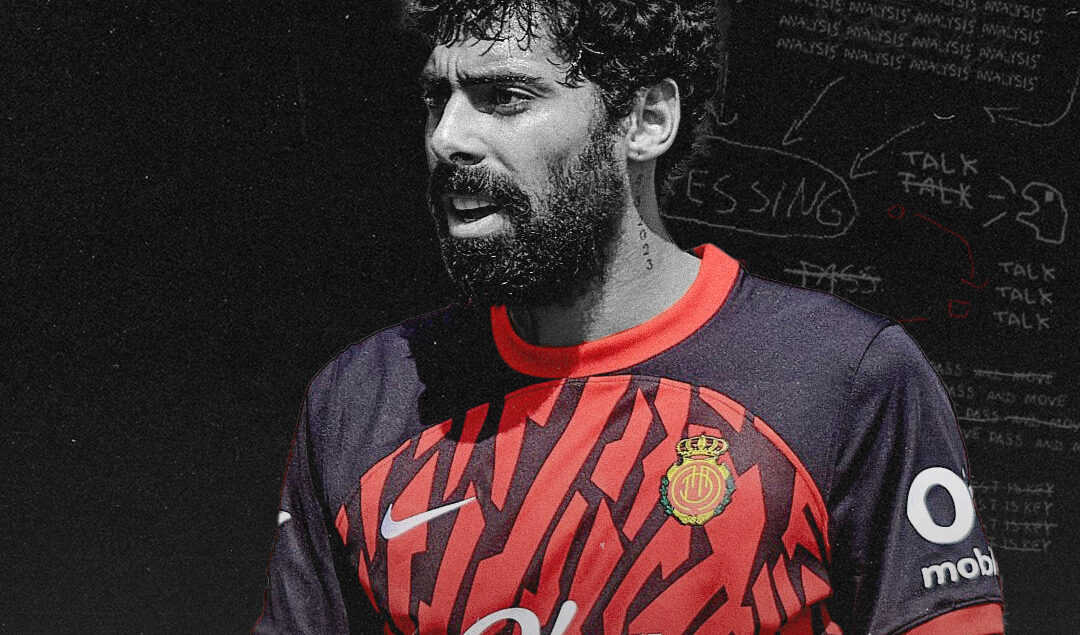Inside the Playbook: What’s Next for Legal Sports Wagering in Missouri
A short drive across the state line offers a clear reminder of what Missouri does not yet have. Once a phone crosses the border, apps open, bonuses appear, and betting options become available in seconds. Back home, residents watch the debate restart each legislative session as policymakers struggle to reach agreement on a framework that would bring the activity inside state lines. Understanding how the state arrived here and what could finally move the issue forward is essential for anyone following the next chapter of this long running discussion.
Where Missouri Stands Today
What Is Legal Right Now
Missouri permits casino gaming at licensed riverboat properties and allows major daily fantasy platforms to operate statewide. Fantasy contests function under established consumer protections and age requirements, and sports themed promotions appear frequently in stadiums or broadcasts. Those promotions stop short of taking wagers, and nothing in current law lets residents place a regulated sports bet within Missouri’s borders.
Retail sportsbooks are not active in any casino, and mobile apps remain unauthorized. Anyone who wants to place a sports wager must travel to a neighboring state and make a bet there. This creates a steady outflow of dollars to Kansas, Illinois, Iowa, Arkansas, and Kentucky. Residents evaluating promotions across state lines often encounter offers tied to national brands, such as the BetMGM Missouri promo code while comparing options during a border trip.
What Remains Off Limits
Any entity accepting sports wagers without a Missouri license is illegal. Offshore websites that market to U.S. customers fall into this category, as do unapproved kiosks posing as sweepstakes devices. Advertising services that accept wagers without authorization can trigger state and federal scrutiny.
Casinos cannot take bets on games under current law, and pro teams cannot run in venue betting lounges. There is no mechanism for app registration, no tax collection on betting revenue, and no state based monitoring for integrity alerts tied to sports betting.
Staying Safe Until Laws Change
The safest option for residents waiting on legalization is to avoid offshore websites and bypass tools that manipulate location. Those services lack guaranteed payouts, identity verification, and responsible play features. If someone chooses to wager, crossing into a legal state and using a licensed app provides protections and accountability. Spending limits, two factor authentication, cooling off settings, and statewide self exclusion tools help keep activity in a healthy range while the state continues to debate its next move.
How We Got Here: Recent Bills and Ballot Efforts
Issues That Keep Blocking Agreements
Each year, the House advances a sports wagering bill tied to casinos and pro franchises. The Senate often stalls the effort over additional provisions, especially disputes involving video lottery terminals and gray machines in bars and truck stops. Some lawmakers want these devices legalized and taxed as part of a bundled deal, while others insist on keeping them separate. Linking the issues tightens opposition and frequently stops progress.
Other sticking points include tax rates, promotional deductions, and the number of mobile skins each casino can offer. A moderate rate originally appeared competitive for the region, but increases elsewhere shifted expectations. Consumer groups have asked for tougher advertising rules and restrictions on college props, adding pressure to negotiations.
What Recent Proposals Include
Most recent drafts move toward a sports only structure to avoid the gray machine conflict. They typically propose statewide mobile wagering, limited operator skins connected to casinos and sometimes pro teams, required use of official league data for certain in game markets, and a tax in the low or mid teens. Some proposals direct a portion of revenue to education or problem gambling services, with set funding for treatment programs.
Pro teams have supported initiative petitions to take the issue directly to voters. These proposals often emphasize faster timelines, dedicated licenses tied to franchises, and clearer funding pathways for schools and responsible gaming initiatives. Whether a measure appears on the ballot depends on signatures, verification, and legal review of summary language. For an in-depth perspective on how sports institutions influence public policy and community initiatives, Breaking The Lines offers thoughtful commentary and analysis. The message behind these petitions is consistent. Fans want certainty and prefer a defined path rather than continued gridlock.
The Road Ahead: Scenarios, Timing, and Milestones
Legislative Session Paths
Missouri’s legislative session runs from January to mid May. A viable bill must advance through committee, withstand amendments, and reconcile House Senate differences before adjournment. Three paths are commonly discussed:
- A clean sports only bill that avoids gray machine debates, sets a tax in the teens, and allows mobile access tied to casinos and teams. Regulators could finalize rules by year’s end.
- A combined bill that includes a limited pilot for video lottery devices in exchange for authorizing sports wagering. This option faces a heavier political lift and greater risk of filibuster.
- No agreement, meaning the issue carries into the next session or moves fully to a ballot strategy.
Ballot Initiative Steps and Deadlines
Citizen initiatives require signatures across multiple congressional districts followed by county level verification and certification. The Attorney General reviews ballot summary language, while the State Auditor prepares a fiscal analysis. Petitions generally must be submitted months before the general election to allow verification and address litigation over summaries. If certified, the measure appears on the November ballot. Passage triggers a timeline for regulators to create rules and issue licenses. If certification fails or timing slips, the next opportunity arrives in the following election cycle.
The Key Issues Lawmakers Must Clarify
License Structure and Market Design
Two main models shape the debate. A mobile only system licenses operators directly, offering a streamlined path to launch but leaving casinos without a structural role. A tethered model pairs each app with a casino or potentially a pro team, creating a defined number of skins and channeling investment into existing venues. A hybrid approach could grant casinos several skins, allow limited team based licenses, and require clear entry standards around experience and integrity.
Tax Rates and Revenue Allocation
Regional comparisons inform expectations. Kansas sets a rate near 10 percent. Iowa sits in the single digits. Arkansas applies a graduated tax. Illinois recently adopted tiered rates that climb for larger operators, and Kentucky set a higher rate for mobile betting. Missouri must balance competitiveness with revenue goals. A rate between 12 and 20 percent appears often in recent drafts, with promotional deductions phased down gradually. Clear earmarks for education, local governments, or problem gambling services tend to improve public support and build trust in the system.
College Betting and Prop Market Rules
National attention has focused on college player props due to concerns about harassment and athlete well being. Several states recently limited these markets, and Missouri could follow suit. Options include banning college player props, permitting only team based outcomes, or allowing limited postseason exceptions.
Rules for in state college wagering also vary. Some states restrict bets on local programs during the regular season, while others allow them with enhanced monitoring. Whatever approach Missouri takes, coordinated reporting between regulators and universities will be essential to protect athletes.
Integrity Standards, Consumer Protections, and Advertising Policies
Any regulated framework will likely require membership in integrity monitoring associations, suspicious activity reporting, and cooperation with leagues on data alerts. Operators should follow strict age verification, identity checks, deposit limits, timeout tools, and statewide self exclusion systems. Funding for treatment and independent research provides long term oversight.
Advertising rules are tightening nationwide. Likely components include limits on campus advertising, restrictions on content appealing to minors, clear disclaimers, and controls on celebrity endorsements. Rules against misleading terms help align promotions with public expectations and reduce consumer confusion.
The Stakeholders Shaping Missouri’s Debate
Pro Teams and Major Leagues
Missouri’s professional franchises influence public opinion and carry substantial political weight. They can anchor retail lounges or partner integrations once a framework exists. Leagues continue to advocate for official data requirements and rapid information sharing on integrity matters. Their leverage increases when they present unified positions.
Casinos and Established Gaming Operators
Licensed casinos provide the infrastructure and compliance experience needed for a regulated market. Many prefer tethered mobile models that balance competition with manageable oversight. They remain wary of expanded gray machines outside casino settings, especially if those devices compete for the same customers. A proposal offering clear economic value for casinos and surrounding communities can shift these stakeholders firmly into the supportive column.
Tribal Nations and Neighboring States
While Missouri’s tribal landscape differs from states with extensive tribal gaming compacts, regional tribes monitor developments closely. Neighboring states continue capturing Missouri demand, shaping consumer habits that become harder to reverse over time. Kansas launched with aggressive promotions aimed at border populations. Illinois and Iowa offer deep app menus, and Kentucky now provides another option for southeastern residents.
Public Sentiment and Advocacy Groups
Polling in nearby states suggests broad support for regulated sports wagering when revenue supports public programs and when protections for young people and athletes remain strong. Faith based organizations and some legislators remain skeptical, emphasizing risks of addiction and concerns about advertising saturation. Problem gambling advocates push for guaranteed funding and transparent data to guide policy decisions. Lawmakers often shape final bills by balancing these competing perspectives.
Weighing the Numbers: Economic Potential and Social Considerations
Revenue Expectations and Outflow to Neighboring States
Border activity illustrates the scale of unmet demand. Traffic spikes on game days show a measurable number of residents traveling to Kansas or Illinois to place bets. Early reports from Kansas indicated a notable percentage of new accounts near launch came from users with Missouri ties. That trend stabilized but continues at lower levels. Similar patterns occur in the St. Louis region and the north, where Iowa benefits.
Revenue projections vary, but a statewide mobile market could reasonably generate substantial annual handle and a meaningful tax contribution depending on the rate and promotion rules. Retail only models produce far smaller numbers. The structure matters more than headline projections. Competitive markets with clear guidelines usually encourage consumer adoption while protecting the tax base.
Funding for Problem Gambling and Long Term Safeguards
Any launch must incorporate robust support for prevention and treatment. A dedicated share of tax revenue for problem gambling services provides reliable funding insulated from annual budget pressures. Statewide helplines built into operator apps, flexible self exclusion tools, and clear reality checks help individuals manage their activity.
Regulators can require audits of affordability algorithms, enforce penalties for violations, and commission independent prevalence studies every few years. Publishing results and adjusting rules accordingly creates accountability and strengthens public confidence.
Missouri’s debate will continue until lawmakers or voters deliver a clear framework. When that happens, the conversation will shift from political stalemate to practical rollout, and residents will finally gain clarity on what regulated sports wagering inside the state will look like.

